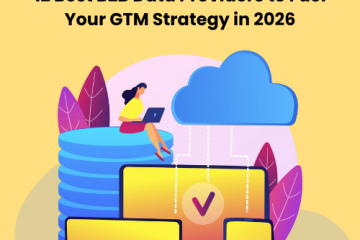Website Event Tracking: Guide for B2B Businesses
In traditional brick-and-mortar businesses, it was easy to understand what a particular person was interested in by observing their behavior. What they were looking at, what they were checking out by holding and examining conveyed interest.
The shopkeeper or salesman could approach the particular person, strike up a conversation about the product with the objective of convincing the customer about the product and converting them into a customer.
With digital selling, the problem, however, became that you could not observe the behavior of a particular viewer the way you could observe a person in a store in the traditional sense.
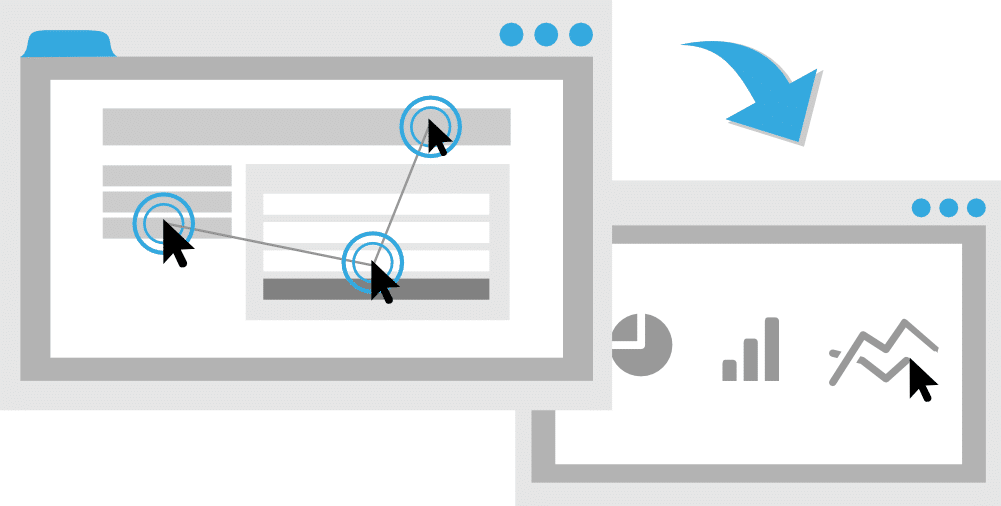
Image Courtesy – eventanalytics.org
Website tracking became mainstream to solve this problem. Website event tracking is a subset of website event tracking where certain actions or events are tracked and connected to the sales and marketing process. In this article, we will understand what website events are and how they can be tracked.
Understanding Website Events
To put it as simply and plainly as possible, any form of interaction that takes place between a viewer and any element/component on the website is a Website Event. You can even say that anything that happens on a website or a webpage can be registered and recorded as an event.

Image Courtesy – Verifone
Website Visitor Tracking tools allow you to define and track such events to gather the information that can be used to create a primary database that has multiple uses and applications. High-quality databases significantly improve the potency of analytics and actionable insights.
There are various ways in which you can classify and categorize these events for analytics but by far the most commonly used method to categorize website events is as per their significance in terms of action performed.
Website events are categorized as per their significance as:
Macro Events
These events are significant ones as they exhibit strong purchase intent or purchase outright. These can also include actions such as lead form submission, sales inquiry, conveying requirements, requesting quotes, etc.
Depending upon the industry you operate in, what actions can be considered as Macro Events differ. Web Analytics Tools allow you to define these Macro events, record and track them for further use.
Micro Events
These events are slightly less significant compared to Macro Events but still convey purchase intent nonetheless and play a part in the build-up to a conversion. Checking the Pricing Page, Signing up for the Newsletter, Signing up for a Free Trial, Adding to Cart, Wishlisting a product, etc. all can be considered as a Micro Event.
While they’re not achieving the objective of a website in one go, they are still valuable to build the purchase momentum and provide value further on by enabling you to market to particular individuals who are already interested in your products.
Engagement Events
These events don’t particularly contribute to the purchase momentum or exhibit purchase intent but are important in the sense that they help one assess how viewers are interacting with content and elements on the website.
General clicks, tracking a viewer’s path across web pages, post likes, comments, clicking on links that redirect to your social media accounts, playing a video on your website, etc. all count as engagement events. For example, a lead watching a full 1-hour webinar of a product use case is a strong signal.
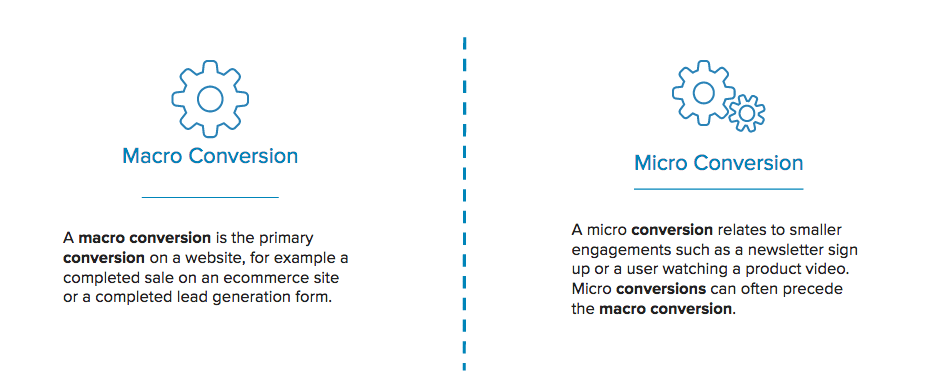
Image Courtesy – optimizely.com
How Does Website Event Tracking Work?
The process of Website Event Tracking differs from one software to another but at the core of every Website Event Tracking Function is the same setup that enables it to track and record all events that occur on a domain.
The first stage is to decide what actions will be categorized as Macro, Micro, and Engagement Events. Once these are defined, you can either tag or code the particular website elements that trigger the particular action.
Once this has been done, your software will register and create a log of all the events you’ve defined, as and when those occur. Additionally, it will track how one event leads to the next and keep track of the entire customer journey.
This will help you understand how well each element works, how the customers travel from one point to another, and whether they convert or not. And, if they don’t, where was the point where they dropped off?
Website Event Tracking grants a lot of actionable insight into the performance of your website and your business’s marketing function. A lot of parameters can be tracked and evaluated using it, which can help you improve your customer engagement functions.
An event tracking software like Salespanel can help you log specific events from your website and perform actions when these events are triggered. For example, you can add a visitor to your retargeting pixel when they watch a full webinar, read a case study, or stay more than 10 minutes on your websites. The use cases, especially for B2B businesses, are endless.
How Does Website Event Tracking Benefit B2B Businesses?
In offline business, as discussed, a shopkeeper or a salesman observes and interacts with potential customers to try and understand their requirements, preferences, and behavior.
All this information is memorized to provide the potential customer with exactly what they need and give them a personalized experience every time they visit you.
In the online space, this exact function is facilitated by cookies. Cookies are files created by a website to identify each individual user and store information about them that they provide.
Combining Cookies and Website Event Tracking enables some powerful functions that B2B Businesses can significantly benefit from. The benefits are as follows:
Facilitates Lead Scoring
Observing actions and interactions performed by a lead is important. Their actions signify their purchase intent and additionally how ready they are to make a purchase. Event logs of a particular lead can be used to score the lead by assigning points to each action they performed while on your website.
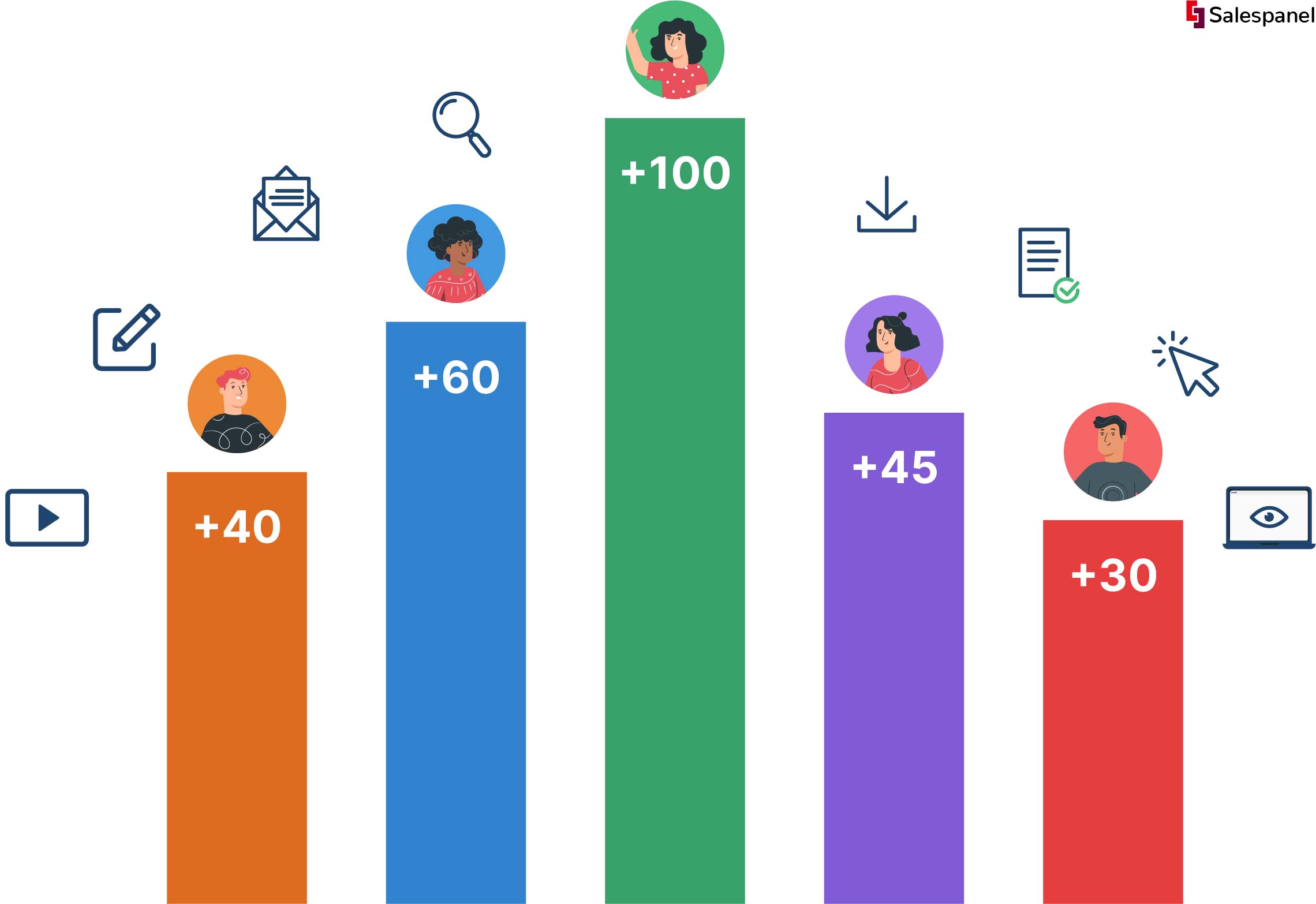
The process of Website Event Tracking and Lead Scoring can not only be combined but automated entirely to save on time and resources of a business. With Salespanel, you can easily create specific events and tie them to lead scoring rules.
Provides Better Understanding of User Behavior
Understanding what the users do when they land on your website, what they click on, which pages they navigate to, and what they read, etc. can help you understand a lot about how your customers behave.
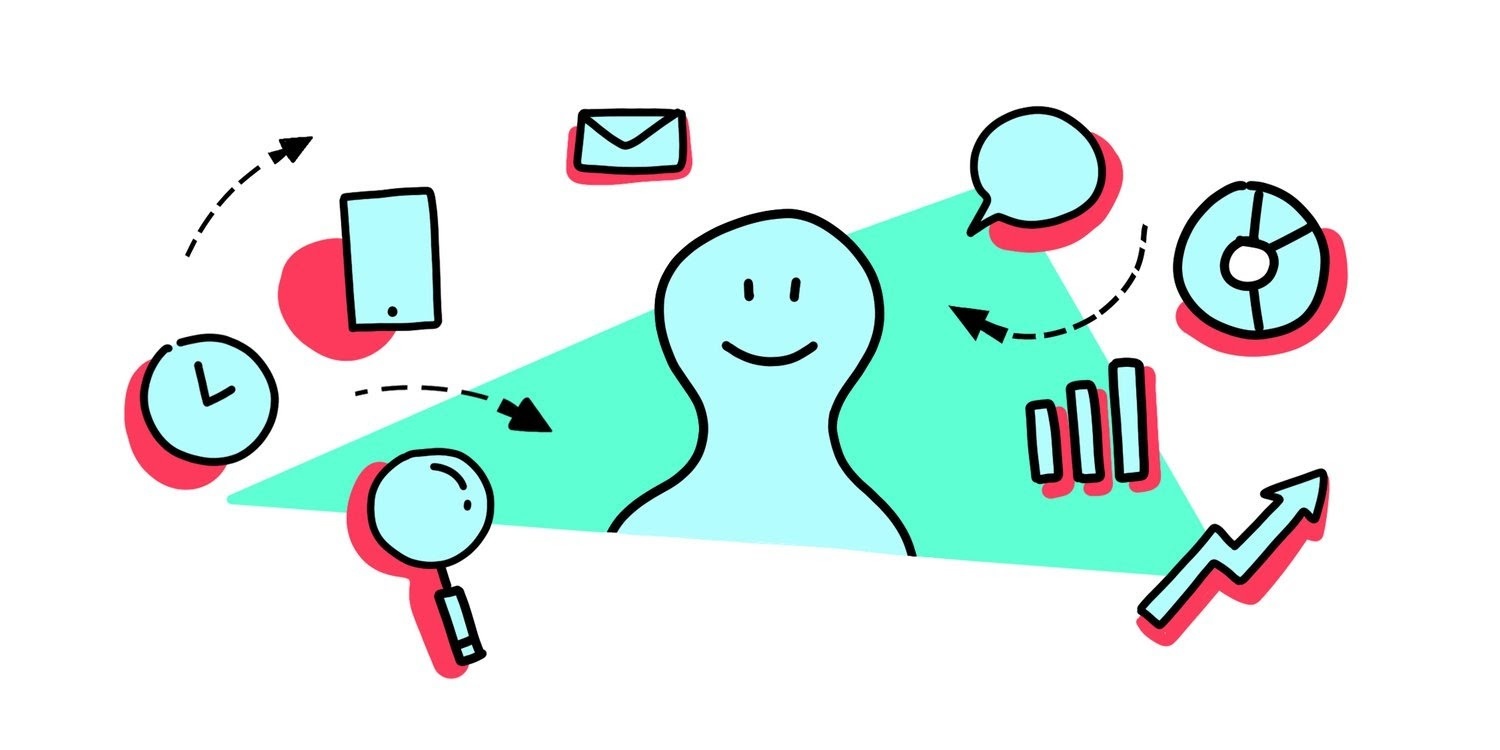
Image Courtesy – hotjar.com
As a B2B Business, your goal is to shorten the sales cycles, which means, you have to design and optimize the website such that it can swiftly guide a lead into your sales funnel. This will enable you to have a greater sales throughput.
Minimizing Lead Drop Off
No business can convert all the leads that it generates but there are ways to significantly reduce lead drop-offs by identifying and fixing any issues in your marketing function and website.
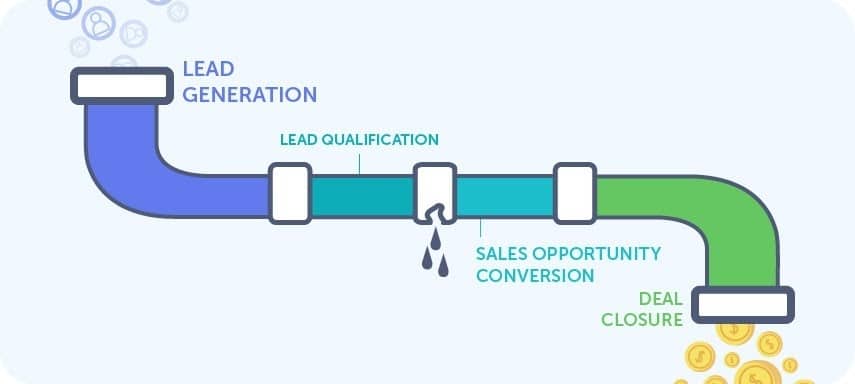
Image Courtesy – salesintel.io
Website Event Tracking helps identify the series of events that occur before a Lead drops off and the exact point at which they do so. This can help a marketer identify what design element or content may be causing the problem which can be fixed to mitigate drop-offs.
Also, visitors who are more likely to buy can be qualified and can be fast tracked through website personalization.
Behavioral Analytics for Lead Qualification
All the data collected through Website Event Tracking can be fed into a Behavioral Analytics tool to generate effective and actionable insights into lead behavior.
Quantifying lead behavior and using it as a parameter to qualify a lead significantly raises the accuracy and effectiveness of the lead qualification function.
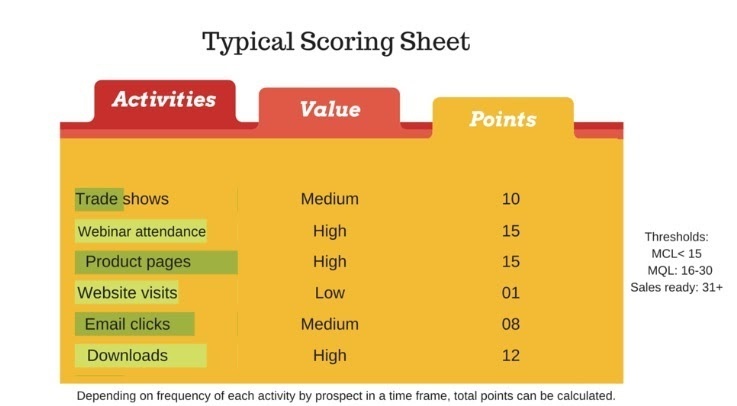
Image Courtesy – expressanalytics.com
Using this approach can save the business a lot of resources and time while also enabling them to target only those leads that exhibit the highest chances of conversion.
Personalized Customer Experience –
Having data about how a user interacted with your website in his previous visit, their preferences and other inputs can be used to provide a custom-tailored customer experience to the user.
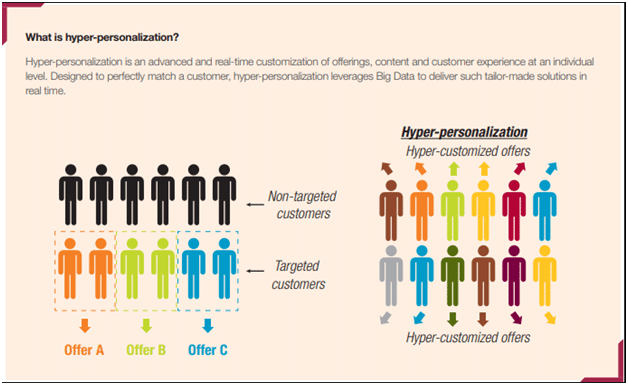
Image Courtesy – wishpond.com
Knowing their exact requirements, reorder history, etc can enable the sales team to make a highly customized pitch quickly to shorten the sales cycle and ensure conversion.
Other Applications of Website Event Tracking
For Targeting and Segmenting Audience
Focusing your marketing efforts is important as running a blanket marketing campaign is not only ineffective but wastes a significant amount of scarce business resources.
Knowing the activity of your users, how they interact with your website and how much time they spend navigating through are crucial pieces of information. This information can be used to create a highly targeted marketing campaign to only target those users who have shown a high degree of purchase intent.
Moreover, a personalized approach can be adopted for marketing as a lot of behavioral data is available along with the demographic data of the user. Combining both, you can segment your audience in a way that facilitates personalization.
Segmentation also allows you to test different marketing strategies based on the activity of users on your website. Using Website Event Tracking you can create cohorts to A/B Test Marketing emails, posts, and videos.
For Marketing Attribution
Marketing attribution is a powerful data analytics tool that enables a business to make small changes in its marketing functions that can significantly improve the efficiency and potency of a particular marketing campaign. It also helps in connecting crucial marketing engagements and touchpoints with revenue.
Website Event Tracking is a crucial component of Marketing Attribution as this is what allows a marketer to track the phase of the customer journey that takes place on the business’s website.
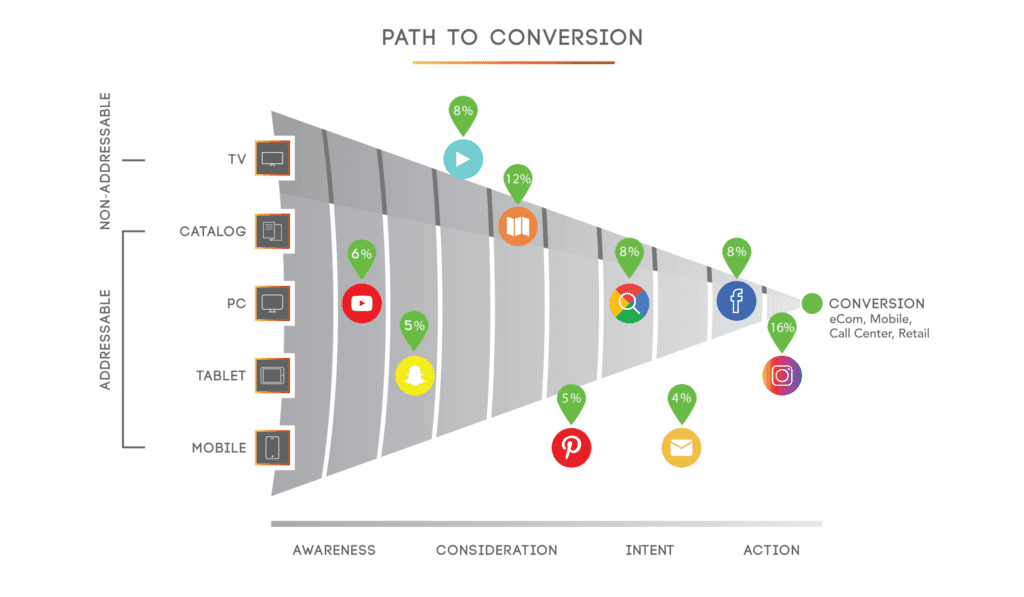
Image Courtesy – measured.com
The Event Log of a user’s activity on the websites serves as a guide to identifying various touchpoints a user interacted with before finally converting.
Using Marketing Attribution and a suitable attribution model, a lot of insights can be gained into the performance of the various components and elements that make up a particular marketing campaign.
To Sum Up
A lot of actions and interactions are taking place on your website at all times.
Many things can be learned and improved by observing, recording, and tracking the activities of users and how they interact with various website elements. Website Event Tracking can significantly benefit you in prioritizing high ACV leads and connecting your marketing elements with revenue as you track the entire customer journey.
Sell more, understand your customers’ journey for free!
Sales and Marketing teams spend millions of dollars to bring visitors to your website. But do you track your customer’s journey? Do you know who buys and why?
Around 8% of your website traffic will sign up on your lead forms. What happens to the other 92% of your traffic? Can you identify your visiting accounts? Can you engage and retarget your qualified visitors even if they are not identified?
